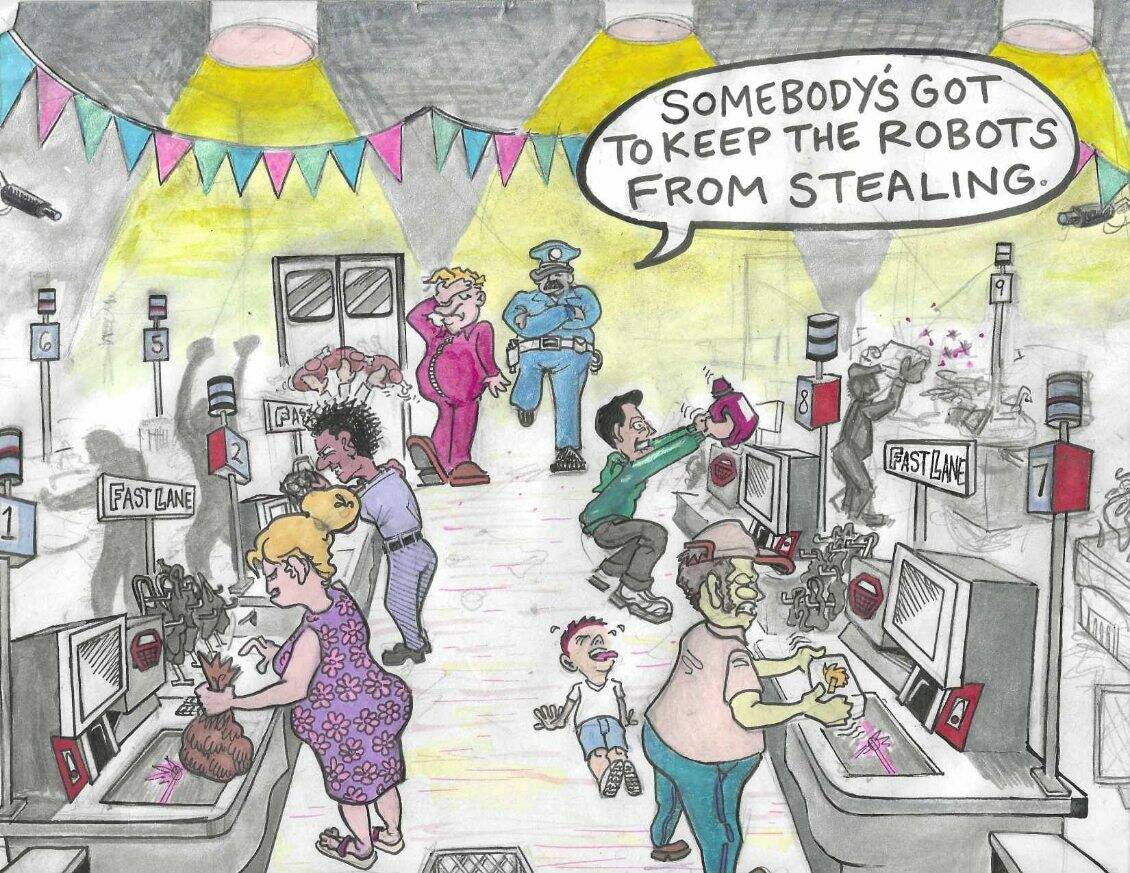EDITORIAL: Little evidence grocery merger would hurt consumers
Critics are urging the Federal Trade Commission to quash a proposed merger between grocery chains Albertsons and Kroger, arguing the marriage would drive up costs for Nevada consumers. Nevada Attorney General Aaron Ford has also voiced concerns.
But where’s the evidence that bureaucratic meddling in the deal would benefit those same consumers? In fact, the last time the FTC intervened in a similar matter, the result was an utter boondoggle for Las Vegas shoppers.
Nine years ago, Albertsons and Safeway announced a plan to combine forces. Opponents claimed the move would lead to store closures, food “deserts,” price hikes, union busting and all manner of societal ills. FTC officials, who enforce antitrust law, extracted concessions before granting approval.
In return for the blessing of beltway bureaucrats, the chains agreed to sell 146 stores in five Western states, including Nevada, for $300 million to Haggen, a small grocery chain out of Washington. The transaction soon evolved into a fiasco.
The Las Vegas-area Haggen stores featured high prices and spotty customer service. Within months, the chain was forced to close dozens of stores in other states. By the end of 2015, it had shuttered its seven Las Vegas locations, at least one of which remains vacant to this day. Many workers were left unemployed. Ironically, Albertsons reclaimed a handful of the locations.
It was a testament to the fallibility of federal regulators.
The Albertsons-Kroger deal is following a similar path. In September, the companies agreed to sell 413 stores — in yet unnamed locations — to C&S Wholesale Grocers in an effort to appease the federal government. But that’s not likely to be enough. FTC chair Linda Kahn is a vocal skeptic of free markets and industry consolidation. The agency has yet to act on the issue.
Yet there is no indication that this merger would be harmful to consumers or create a monopoly. Kroger has an 8 percent share of the marketplace, well behind Walmart, the top grocery retailer with 22 percent, according to the Wall Street Journal. Albertsons is at 5 percent. Kroger has lost market share recently — hence its acquisition plans in an effort to remain competitive.
“While a merger would not make Kroger and Albertsons the dominant industry players,” Nate Scherer of Reason magazine notes, “it would allow them to compete more effectively with others, putting pressure on all major retailers to keep prices low as they fight to preserve their customer base.”
Consumers have more grocery choices today — in terms of both goods available and companies that sell them — than they’ve ever had. This merger won’t change that as the market continues to evolve both online and in brick-and-mortar locations. There’s no reason for Mr. Ford or Ms. Kahn to stand in the way of market forces.
This commentary initially appeared in the Las Vegas Review-Journal.












